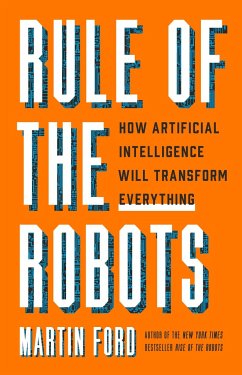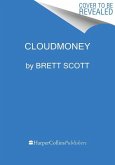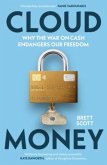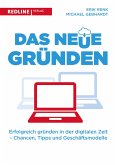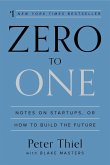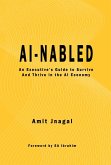"If you have a smartphone, you have AI in your pocket. It's everywhere online. And it has already changed how doctors diagnose disease as well as how you interact with friends or read the news. But In Rule of the Robots, Silicon Valley tech entrepreneur Martin Ford argues that true disruption is yet to come, as AI ceases to be a tool applied to specific problems, and becomes a utility: the industrial foundation upon which practically all activity-personal, economic, and political-is based. Ford calls it an "electricity of intelligence." Not so long ago, running a machine required animals, or access to water, and was completely unportable. Electricity turned power into a utility-something cheap and omnipresent. The change enabled us to do work wherever we wanted, and it radically altered every aspect of life, from our diets to our jobs to our entertainment. In Rule of the Robots, Ford shows how AI-heretofore as specialized as a water mill was 200 years ago-is breaking free from its bonds, becoming as ubiquitous and simple to use as a power jack and an extension cord. No one would begin any enterprise, no matter how minor, without power or running water. Ford argues the same will go for AI in the future: the police will rely on it as they surveil us; our business partners as they decide how to work with us and their own customers; schools as they weigh how to teach our children; and probably even you, as you try to juggle the tasks of work and home. This is no mere tech tour of today. Ford has already proven incredibly prescient about the future of AI and work in Rise of the Robots. Thanks to his connections in the AI community, Ford isn't simply reporting on tools, like deep neural networks, that already exist: he is able to map out the course of the technology's future as well; who's full of hot air and who might delivery on what they've promised. That access enables him to see what is likely to change in the near term, and what will take longer, giving us time to implement the necessary political and social measures to ensure that society shapes its own future, rather than simply being driven by the consequences of our technology. Those consequences will be profound. Running water eradicated a great many diseases from our midst, and electricity banished darkness. Ubiquitous AI promises empowerment, but it also threatens to infantilize us. In the right hands, as Ford shows, AI should help us best coronavirus and escape the worst consequences of climate change. In the wrong ones, it will empower totalitarianism and put us all out of work. We are in the midst of the ultimate disruption. Rule of the Robots is the essential guide to not just whether we thrive in it, but even if we just manage to survive"--
Hinweis: Dieser Artikel kann nur an eine deutsche Lieferadresse ausgeliefert werden.
Hinweis: Dieser Artikel kann nur an eine deutsche Lieferadresse ausgeliefert werden.
Probably the most compelling single-volume book so far on AI's advance and the opportunities and challenges associated with its multi-faceted impact on the world. Those in AI and those outside it will get a lot out of his clear-eyed and critical perspective. I highly recommend it James Manyika, Chairman and Director of the McKinsey Global Institute

